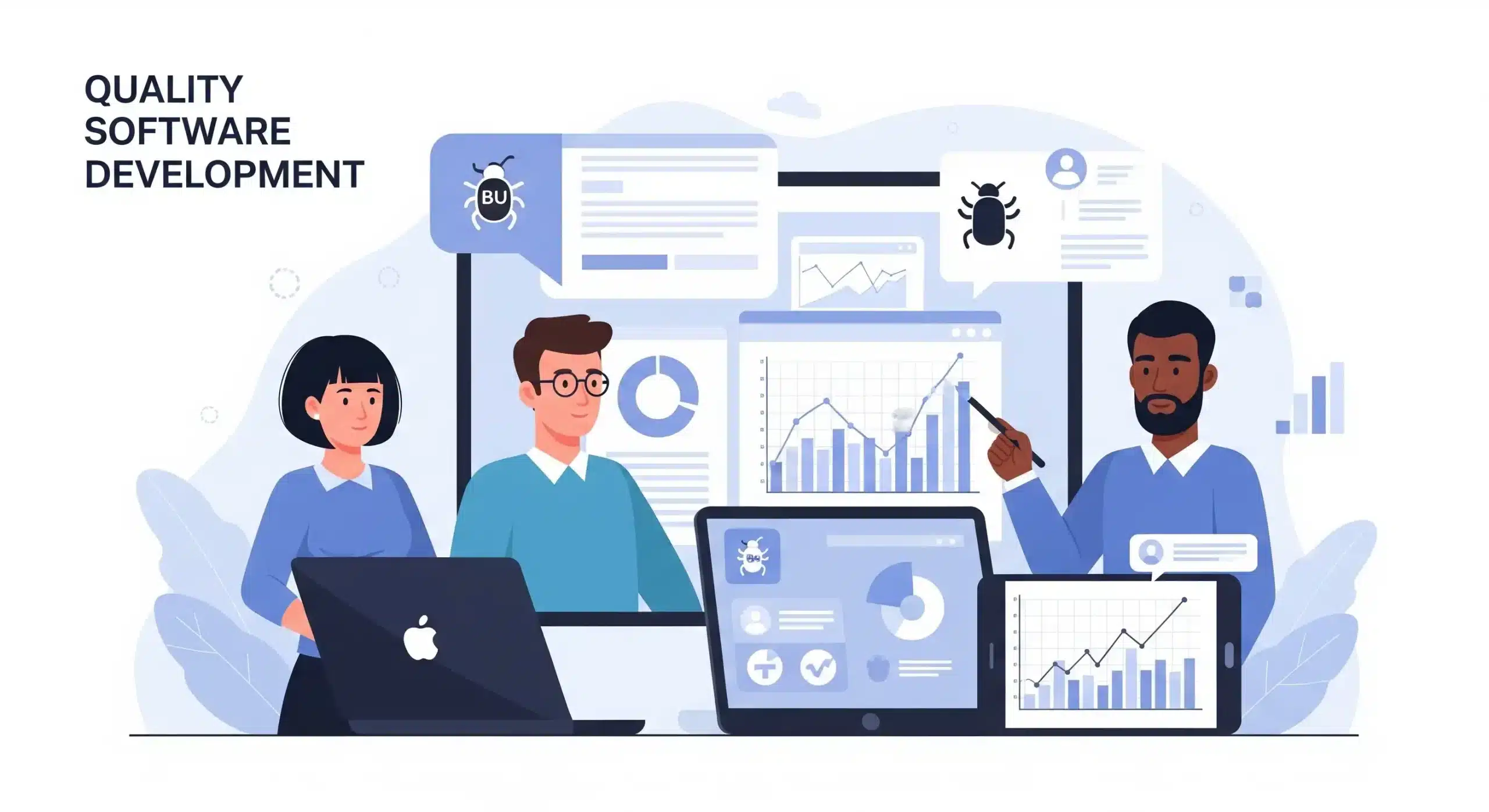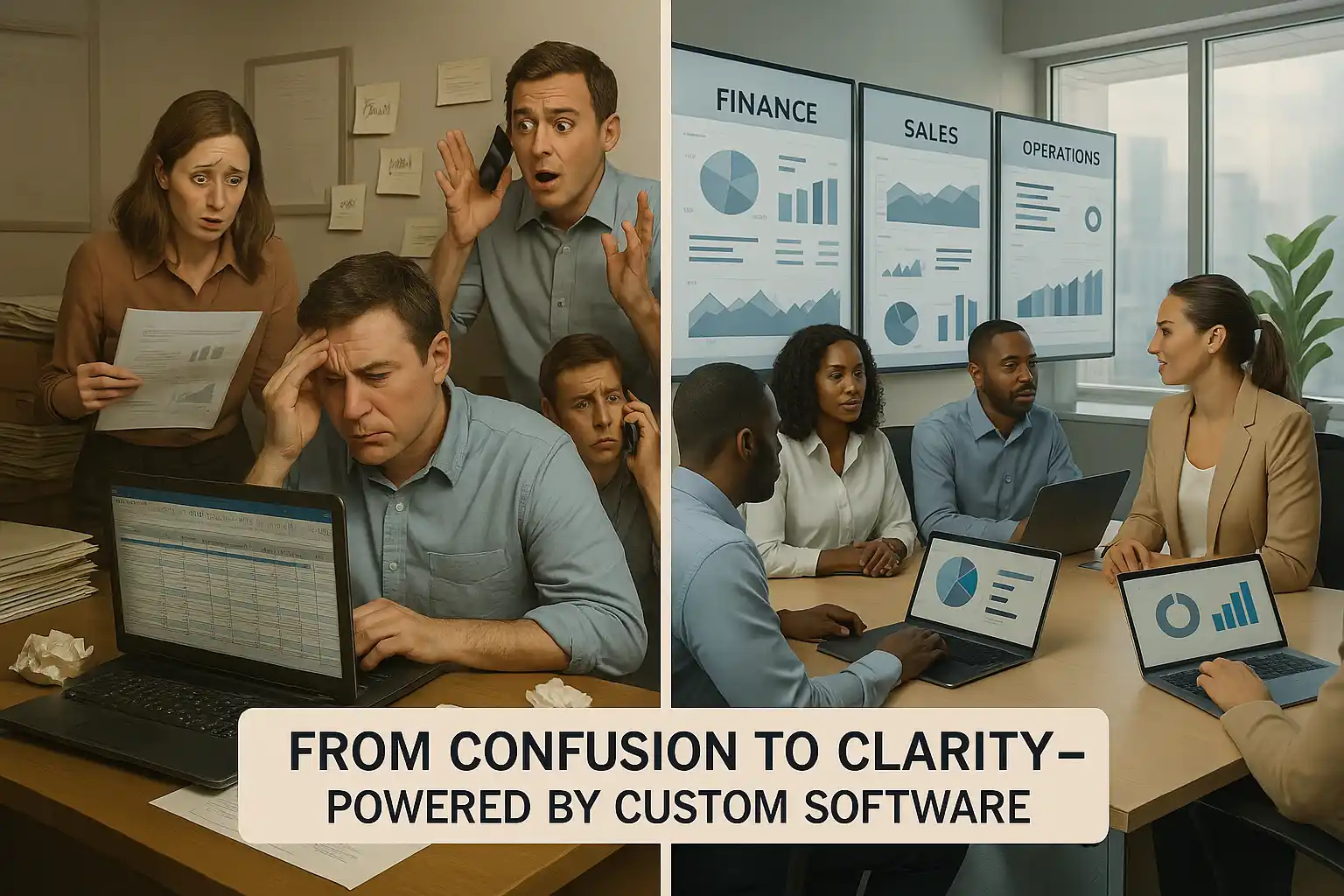Enterprise Software Development – An Ultimate Guide to Get Started!

The digital transformation has drawn a major chunk of businesses towards maintaining their positions in an increasingly competitive market.
To stay ahead of the competitors and hit a remarkable presence in the industry, the businesses must adopt smart software development solutions that ensure smooth sailing.
In this blog, we will guide you about Enterprise Software Development from scratch. By going through this blog, you can learn what is an enterprise software development and which software would be the best one to suit your specific business needs.
Let’s get started here!
What Exactly is Enterprise Software Development?
The process is all about developing an application or a platform that resolves major problems across a large organization and ensures streamlined workflows.
The enterprise software is developed with unique features and functionalities that help businesses in reducing inefficiencies, slick communications within the company, and ultimately enhancing the productivity of their employees.
And depending on the nature of any organization, such software can serve them with many more additional functions and features.
For example, a large company or an enterprise has very different needs compared to that of a small company. Hence, they would need to perform thorough research in enterprise software development to cater to the unique needs of each company.
6 Types of Enterprise Software Development You Can Choose From
When you reach a certain size, your business operations become more complex and time-consuming to manage. In a world, when automation is the need of every business, you can’t miss out on having custom enterprise software developed for your business.
Here sharing the list of top 6 enterprise software that you can make your business operation run seamlessly than ever –
- Enterprise Resource Planning (ERP)
- Customer Relationships Management (CRM)
- Business Intelligence (BI)
- Supply Chain Management (SCM)
- Human Resources Management (HRM)
- Marketing Automation
- Business Process Management & Automation
1. Enterprise Resource Planning (ERP)
If you are struggling in maintaining a database of customers, managing their inventories, processing the orders, and ensuring on-time delivery, ERP software can help you ensure smooth-running of all operations without any hassles.
It creates a unified database that reduces the number of errors. You enter the data only once and that can be accessed and used by all the departments at the same time.
Custom AI Software Development Solution For Enterprises
2. Customer Relationships Management (CRM)
Sales and customer support are the lifeblood of any business. Having a CRM system implemented in your organization can help you unfold many opportunities to cross-sell, market new services to existing clients, or close the deals.
It enables you to track how you can interact with a customer by looking through the previous conversations made with them (if any). With advanced features to track leads, manage orders, interact with clients, and plan marketing campaigns in place with CRM software, you can turn more and more consumers into clients every day.
3. Business Intelligence (BI)
Using the BI software, the companies can gain actionable insights based on the data that comes from various sources, be it marketing, sales, manufacturing, HR, etc.
The software also uses data mining, benchmarking, and advanced statistical algorithms to make accurate forecasting and help managers stay on pace with the latest trends.
The companies can also use various graphs, charts, and tables designed in BI systems to make better decisions.
4. Supply Chain Management (SCM)
If you’re owning a manufacturing business, you must be struggling in maintaining effective management, easy storage, faster shipping, and timely distribution.
Using the Supply Chain Management (SCM) software, you can ensure to have a steady flow of supplies for ongoing production and delivery. Additionally, you can gather, store, and manage information about the following things –
- Sales & materials ordering
- Suppliers
- Procurement
- Manufacturing
- Order processing
- Warehousing
- Logistics and
- Distribution.
5. Human Resources Management (HRM)
The bigger the organization, the harder it becomes to find the right talent for the company.
Besides, there are a lot of routine tasks to be carried out.
Thanks to HRM software that streamlines everything from hiring to payroll management, workforce planning, performance management, reporting, employee training, and engagement.
6. Marketing Automation
As the business evolves, it becomes impossible to plan and organize all marketing activities manually. Also, it’s difficult to keep track of all leads in real-time.
Having marketing automation software in place can help businesses turn leads into delighted clients. From audience segmenting to building personalized marketing campaigns, scheduling the messages, and keeping track of campaign performances, you can make the most of your marketing efforts.
If you want to learn more about enterprise software development and how you can get one for your business, connect with the experts’ team at Cloudester. Based on your unique business requirements, we will help you choose the right software for your company that also falls within your budget and delivers effective results.
Give us a call at +13314652173 or drop an email at [email protected] to take it further!









